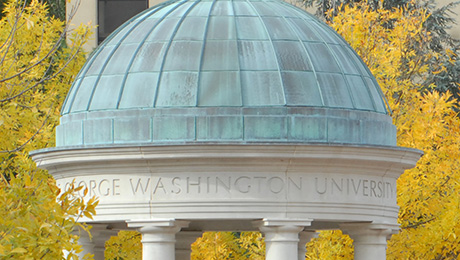The U.S. Department of Education has awarded $2.77 million in funding over three years to the George Washington University Graduate School of Education and Human Development for the creation of an Education Facilities Clearinghouse (EFC), a program that will address the varied needs of students and the education community.
“The education community faces numerous challenges in meeting the social and academic needs of students at all levels,” said Linda Lemasters, associate professor of educational administration at GW and co-principal investigator of the project. “These needs include creating education systems that compete globally; addressing the needs of a diverse student population; focusing on equity and special population issues; and meeting student nutrition, health, safety and security measures.”
Joel Gomez, associate professor of educational leadership, will serve as co-principal investigator and Sharon Dannels, associate professor of educational research, will serve as project evaluator.
Dr. Lemasters will lead the EFC team in developing training and gathering resources related to educational facility planning, design, financing, construction, improvement, operations and maintenance.
The team will also collect resources and practices on issues related to ensuring safe, healthy and high-performing public educational facilities.
“With this grant, GSEHD faculty members are demonstrating their abiding commitment to the improvement of education for all learners,” said GSEHD Dean Michael Feuer. “By offering training, resources and guidance grounded in research, we are advancing GSEHD’s mission to bridge theory and practice.”
The team will create and maintain an EFC website; track, compile and distribute best practices to EFC stakeholders; and create and provide technical assistance including a minimum of two trainings per year for leaders in elementary and secondary education.
The objectives will address a range of issues from unhealthy environmental problems, including mold, asbestos and indoor air quality to school planning, renovation and construction. Training will be geared toward school leaders, board members and other personnel.
The goal is to improve performance of educational facilities and prepare students for changing national and global standards.
“The development of safe, high-quality educational facilities is a critical element of success in meeting the social and academic needs of students at all levels,” Dr. Lemasters said.


